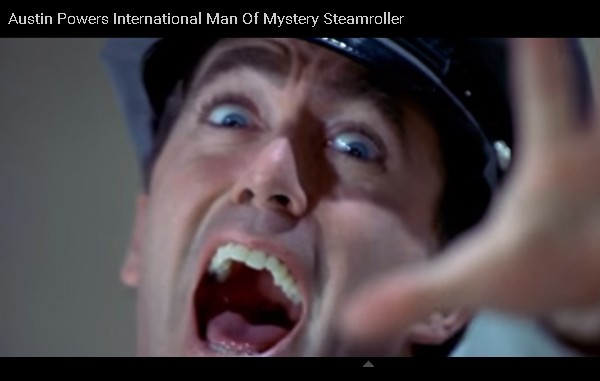Technology is changing everything – how we communicate, how we shop, how we travel, how we are entertained, how we network etc.
I am sure you have heard the observation that today the world’s largest hire car service owns no cars (Uber), the world’s largest accommodation brand owns no properties (Airbnb), the world’s largest media network creates almost no content (Facebook), and arguably the world’s largest retailer has no stock or stores (Alibaba).
It is therefore natural that it is having a huge impact on a business function as essential as marketing and sales. Yet time and again we hear of businesses and marketers being caught unaware by technology.
And this is what happens….
But how can the CEO tell if their CMO, General Manager Marketing, Marketing Director or Marketing Lead needs to be thrown under the technology steamroller to save the company?
Here are five things the CEO should question his marketing lead about:
-
Do you have a marketing strategy and plan aligned to the business objectives?
Too often the marketing function will appear to operate almost separately to the objectives and the strategy of the business. Marketing needs to be aligned with the overall business plan.
To be able to achieve this, marketing needs to be included in the business planning process and have a clear understanding of their role and responsibility in delivering the outcomes required.
If your marketing lead is not able to show how the marketing plan is aligned to the business, it could be because either they are not integrated clearly into the business, or it could be because they are not the right marketing lead for your organisation.
-
Does this marketing strategy and plan support all aspects of the business?
The role of marketing is to create and manage the customer experience. (Marketing is not just advertising and communications). That does not mean they deliver the customer experience. It means they co-ordinate and collaborate with all aspects of the business that interact with the customer including call centres, sales, retailing, online, channels and the like.
This means that marketing leads need to be expert collaborators with all areas of the business to ensure a consistent customer experience leading to delivering the desired outcomes and objectives.
If your marketing lead is not liaising and co-ordinating with all areas of the customer interface within your organisation it means they are working in isolation and it is likely underperforming in their contribution to the revenue results.
-
How is digital technology integrated into the plan to enhance the customer experience?
While your enterprise technology may rest in the hands of your IT function, your customers are increasingly researching and interacting with your business through online search, your website and social networking.
Therefore your marketing function should be working with IT and your other functions to define and develop the customer’s experience of your organisation and your brand through technology.
Digital is not just an advertising media and ecommerce is not just a sales channel. In fact if your marketing lead is not integrating all the technology channels into their customer experience plan and working with your IT function on planning and implementation to enhance the customer experience, then who in your organisation is doing this?
And if someone else in your organisation is doing it, are they working with marketing to integrate the customer experience? If not, then perhaps it is time to find someone who can.
-
Can they demonstrate how you are using data to identify and capture future growth opportunities?
I know your sales team are responsible for understanding and managing your customer relationships. But customer data and customer behavioural data, sometimes referred to as big data, means that increasingly marketing has access to information on how to grow your market share, either through acquisition of new customers or increasing the share of the wallet of existing customers.
Your marketing lead should be using your existing customer data (if you don’t have any identifying ways of building customer data) along with the huge amount of customer behavioural data to develop strategies for increasing acquisition and customer retention.
They should also be looking at how to map and optimise the customer purchase process and increase the conversion of leads to sales, by qualifying the customers more effectively. If your market lead is not focused on using any and all tools at their disposal to drive revenue and value then it is time to find a new marketing head.
-
Would you be willing to make marketing a cost of goods sold and give up your budget?
Ultimately the real test of the value being delivered by your marketing function is measured by having skin in the business performance game. Of course, members of the senior business leadership team will often have personal performance bonuses linked to the financial performance of the organisation.
But the real measure of the commitment of marketing to the financial performance of the company, is to have the marketing budget linked to that performance. The problem with the budget is that it is possible to spend the budget with no direct consequence linked to under-performance.
There is nothing that focuses marketing (or sales for that matter) on performance more than linking the marketing budget to the financial performance of the company. A marketing lead that is confident on the ability of their marketing strategy to deliver financial performance will embrace the concept. But those wanting the security of a defined and fixed budget are clearly less convinced of the efficacy.
Avoiding the impact of the technology steamroller
It is time for organisations to get on the technology bandwagon. Many are, some have been more successful than others. But it is not like we have not all had warning that the steamroller is coming. It has been rolling through business for more than a decade.
But it is marketing, where technology is having the biggest impact, so it is essential that the marketing function within the organisation is co-ordinating the response to the changes in the customer who is driven by these changes.
Therefore if your CMO, Head of Marketing or Marketing Lead is not across or on top of your organisation’s response to the opportunities presented by technology, it is time to consider throwing them under the steamroller and recruiting someone that will put you in the driving seat before it is too late.
Click here for more information about Marketing Business Alignment.




